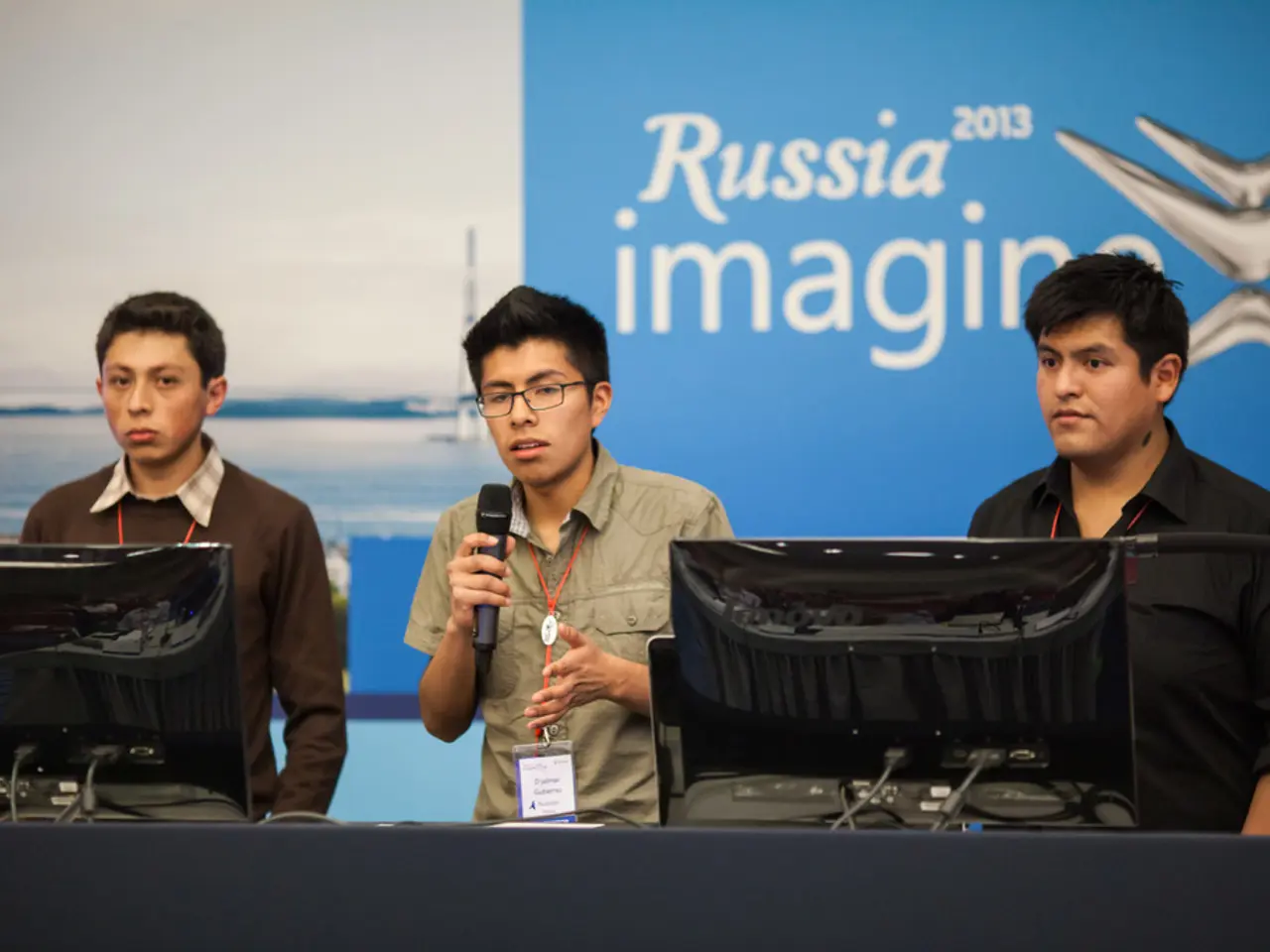Approximately 10,000 suspicious accounts were barred from using Messenger by Mah, a mobile operator, in the month of July this year.
In a move aimed at combating rising scams, fraud, sabotage, and terrorism-related activities, Russia has imposed partial restrictions on voice and video calls on popular messaging apps like Telegram and WhatsApp [1][3][5]. Text messaging and other features remain unaffected for now.
The Russian telecom regulator Roskomnadzor has cited a sharp increase (about 250% in 2024) in fraudulent calls using these apps, accusing the foreign platforms of failing to cooperate with law enforcement by not sharing data related to fraud and security threats [1][2][3][5]. Authorities argue that scam calls have shifted from traditional networks to these encrypted apps, prompting the restrictions.
The Russian government has stated that the restrictions could be lifted if WhatsApp and Telegram establish local legal entities, comply with Russian laws, and cooperate with investigations, including sharing information about criminal activities [1][3][5].
Meta-owned WhatsApp rejects Russia’s claims, emphasizing its commitment to secure, end-to-end encrypted communication, and contests that the restrictions are attempts to push users toward less secure, government-controlled platforms [1][2][4]. WhatsApp has reported blocking over 6.8 million scam-related accounts globally in the first half of 2025 and introduced features like silencing unknown callers to reduce fraud exposure [1][2].
Telegram states it actively combats harmful content, including calls for sabotage, violence, and fraud, by using AI-powered moderation tools to remove millions of malicious messages daily [1][4].
Moscow’s ongoing attempts to control the digital environment—including promoting a homegrown messaging app and pushing for compliance from foreign platforms—have reportedly caused disruptions to voice calls on both apps in Russia since early August 2025 [5].
The State Duma has labeled Telegram and WhatsApp as tools of pressure, deception, and radicalization [6]. Scammers frequently pose as bank employees, law enforcement, or government services, and more than 32,000 spam documents were removed from the apps in July 2025 to prevent potential harm to users [6]. Accounts involved in fraudulent activity are permanently blocked by the messenger's service.
As the situation continues to develop, both companies and authorities remain firm in their stances, with WhatsApp and Telegram maintaining their commitment to user privacy and encryption, and the Russian government pushing for compliance with local laws and regulations.
Read also:
- EA Relies on Madden and Battlefield to Drive Microtransactions Recovery
- Expense for Creating a Digital Platform for Fantasy Sports
- AI-Enhanced Battery-Swapping Station in Southeast Asia Officially Opens Its Doors
- Honda unveils blueprint for design, advanced driver assistance systems, electric vehicles, fuel efficiency, and technology development







